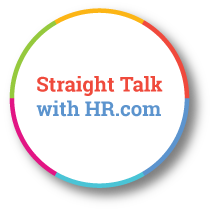AI Revolution: Transforming Traditional Roles and Rules
Exclusive interview with Rey Ramirez, Co-Founder, Thrive HR Consulting
Posted on 10-25-2023, Read Time: 6 Min
Share:

 |
As workplaces undergo continuous transformation, it's essential to grasp the significant influence of AI on the job market and the changing skill requirements. In an exclusive interview with HR.com, Rey Ramirez, Co-Founder of Thrive HR Consulting, shares valuable insights into AI's current and future impact on the job market. This interview not only explores the skills in high demand but also uncovers the potential advantages and challenges arising from increased AI integration in the workplace. The discussion provides a balanced perspective beneficial for both employers and employees. |

Excerpts from the interview:
Q. How do you think AI is currently impacting the overall job market and the types of skills in demand?
Rey: The impact of AI is being felt now in the job market. Organizations are looking at repetitive work that can be done via automation/chatbots/AI machine learning models. Policies, FAQs, and processes can be loaded into an AI-enabled platform and the tool can answer first-line questions for customers, employees, and clients. Moving to these AI platforms will allow employers to limit hires and current employees to focus on higher-level work.Q. What are the potential benefits and drawbacks of increased AI integration in the workplace for both employers and employees?
Rey: The benefits include getting work done more quickly with AI tools that assist with researching information, drafting documents, and analyzing data. The drawbacks include data accuracy of your AI search results, presenting poor results due to lack of review of the results, and obtaining data that does not answer the questions being asked.Q. How do you believe AI will influence job roles and career paths in the coming years?
Rey: AI will significantly impact repetitive jobs that rely on set rules and guidelines. Roles such as customer service, first-line tech or HR support, legal analysis and financial coordination/analysis can be moved to an AI-enabled chatbot to support an organization.Q. In your opinion, what are the ethical considerations that HR leaders should keep in mind when implementing AI-driven HR solutions?
Rey: Ethical concerns include how AI-generated information can be shared with clients/customers as original work vs. AI-generated responses. Many organizations are concerned about employees using AI to complete tasks without sharing how they completed tasks with leaders. Transparency and communications will be critical in deploying an AI strategy into organizations.Q. How can HR departments ensure that employees are prepared for the changes brought about by AI in their respective roles?
Rey: We are recommending the following approaches to prepare for AI. First, develop the AI strategy for your organization – what is accepted, what tools can be used, and who will approve the sharing of the results. We also recommend that HR departments embrace AI and try different pilots with AI products to understand how they work and how to utilize them in your organization. If HR departments don’t take the initiative, other departments will and once that starts, it will become very difficult to find and monitor AI tools in your organizations.Q. What trends do you anticipate in HR practices and policies as AI evolves in the workplace?
Rey: HR departments will need to understand what tools the organization wants to use, build policies, and guidelines on how tools will be approved by IT, how tools will be monitored, and how tools will be communicated to employees and customers. This could be a new way of doing business for organizations.Error: No such template "/CustomCode/topleader/category"!

